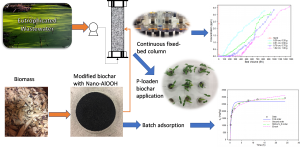 2017 NanoFlorida Participant
2017 NanoFlorida Participant
M.S. Student in the Department of Environmental Engineering Science and Agricultural Biological Engineering
B.S., University of Washington-Seattle
Biography:
- Patrick achieved his B.S. degree in Bioresource Science and Engineering at University of Washington, mainly focused on the chemical processes for biofuel and bioproduct production. His research experience started with water quality analysis internship with Tianjin Environmental Protection Agency, China. Patrick has also involved in undergraduate research at Biofuel and Bioproduct Laboratory (BBL) at University of Washington, working on thermochemical conversion of biomass to fuels and catalytic conversion chemicals funded by Advanced Hardwood Biofuels Northwest, USDA. Patrick also had abundant industrial experience on wastewater treatment with In-Pipe Technology Company. Currently, Patrick is graduate assistant within both department of environmental engineering science and agricultural biological engineering, under Dr Gao’s guidance, working on nanotechnology for environmental remediation.
- Patrick’s research interests include on modified biochar, environmental nano-material, physiochemical processes, and environmental remediation.
Title: Batch and column sorption of phosphate onto nano-AlOOH biochar as a slow-released fertilizer from wastewater
Authors: Yulin Zheng, Bing Wang, Anne Elise Creamer, Bin Gao
Abstract: Biochar, produced from lignocellulosic biomass, has been proposed as a novel approach to establish a significant, long-term sink for atmospheric CO2 in terrestrial ecosystem. In addition, it can also improve the soil quality and enhance crop productivity. Currently, novel methods were developed to produce various types of “Engineered Biochar” for environmental remediation. Eutrophication is one of the most critical environmental problem which seriously damages the health of the aquatic life and ecological environment of a water body. Eutrophication is mainly due to phosphorous pollutions, it is essential to control the P level in the waterbody and improve P-cycling in the environment. In this study, nano-AlOOH biochar composite was produced and successfully reclaim phosphate with both batch and column systems. This project demonstrates that Al-engineered biochar has the potential to be applied in wastewater treatment to remove phosphate; further, P-laden biochar can be used as agricultural slow-release fertilizer to improve phosphate biogeochemical cycling in the environment.
